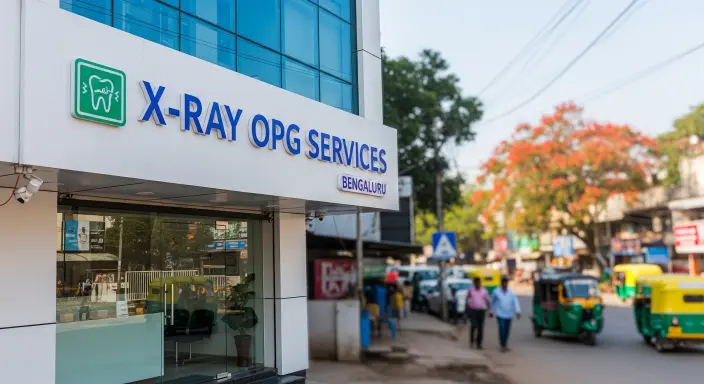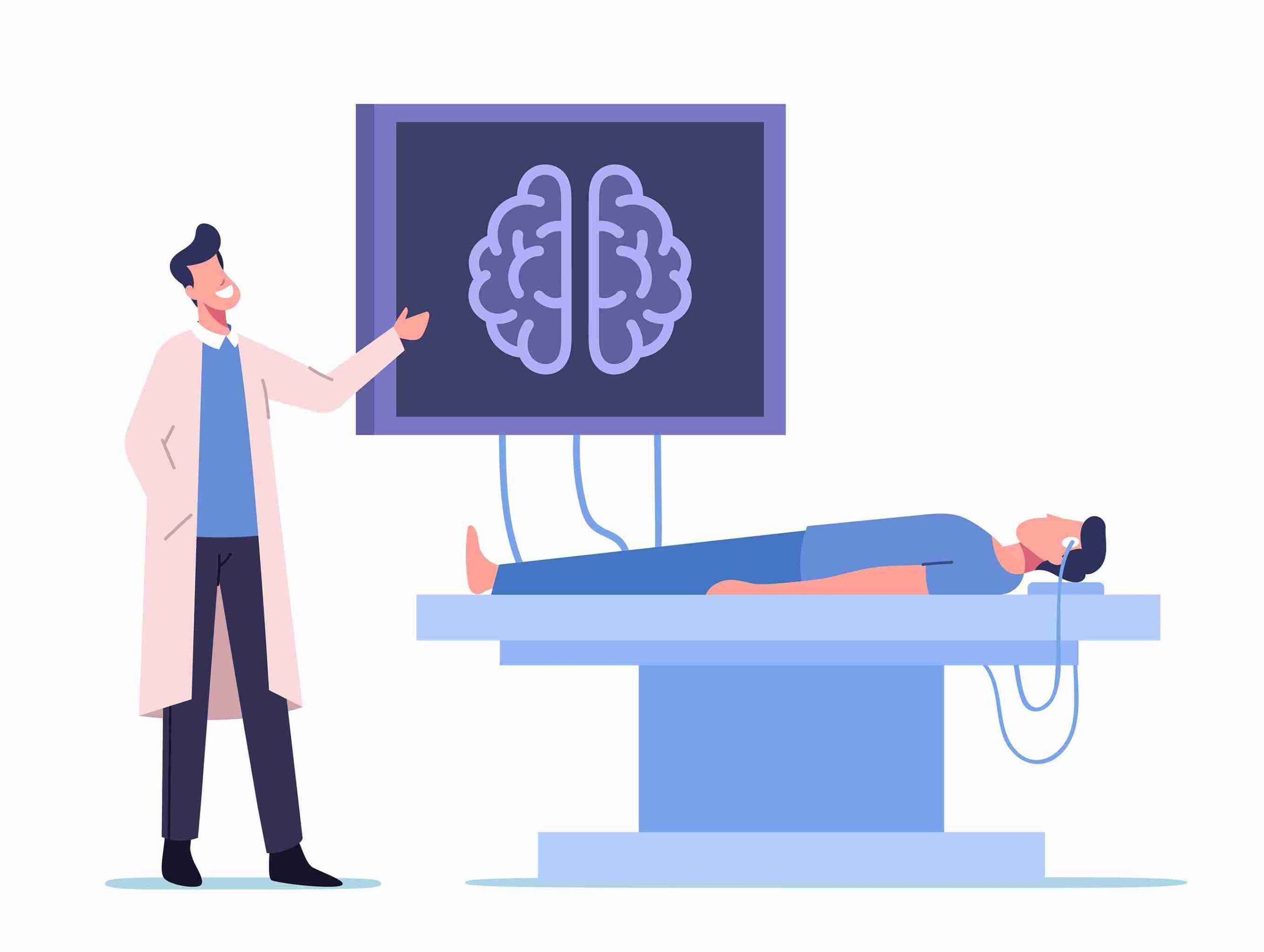
enquiry@ecotowndiagnostics.com
Send Your Mail 24/7 Support
Mon - Sat 6:30AM - 10:00PM
Sunday 6:30AM - 3:00PM
enquiry@ecotowndiagnostics.com
Send Your Mail 24/7 Support
Mon - Sat 6:30AM - 10:00PM
Sunday 6:30AM - 3:00PM

The year is 2025, and inside a quiet clinic in Indiranagar, Bangalore, a patient named Priya is having her brain activity monitored. But this is nothing like the intimidating medical procedures of the past. There’s no sticky, conductive gel being painstakingly applied to her scalp. There are no bundles of wires tethering her to a large, humming machine. Instead, she wears a sleek, lightweight headset, not unlike a pair of high-end headphones, while she comfortably reads a book on her tablet.
This is the new face of neurological diagnostics in Bangalore. The humble Electroencephalogram (EEG)—a test that measures the electrical rhythms of the brain—has undergone a radical transformation. Fuelled by artificial intelligence, wireless technology, and the city’s unique innovation ecosystem, it’s no longer just a diagnostic tool; it’s a predictive, personalised, and profoundly powerful window into brain health. With the rising prevalence of neurological conditions, a timely and advanced EEG test in bangalore has become more critical than ever, and the technology has finally caught up to the need.
For decades, the standard EEG was a cumbersome process. It involved a trained technician meticulously measuring the patient’s head and applying up to 256 individual electrodes with a gooey paste to ensure a good connection. Patients had to remain still, often for an hour or more, in a sterile, unfamiliar environment. The resulting data, a series of squiggly lines on a screen, required an expert neurologist to interpret, a process that could be both time-consuming and subjective.
Fast forward to 2025, and the technology has leaped forward.
Dr. Anya Sharma, a leading neurologist at the fictional “Bangalore Neuro-Diagnostics Centre,” explains, “We’ve moved from simply identifying a problem to predicting it. The AI doesn’t just see a seizure; it sees the faint electrical whispers that precede it by minutes, sometimes hours. This is transformative for patient care.”
This technological leap is not just an academic achievement; it’s profoundly changing lives across Bangalore, from Whitefield’s tech corridors to Jayanagar’s quiet residential lanes.
For epilepsy patients, the 2025 EEG offers a new lease on life. Traditionally, diagnosing the precise origin of seizures—the epileptic focus—was challenging. Now, high-density EEG combined with advanced source localisation algorithms can pinpoint this focus with millimetre accuracy. This has revolutionised pre-surgical planning at institutions like NIMHANS, leading to more successful outcomes and minimising risks. A more precise EEG test in bangalore is directly contributing to better surgical results and seizure freedom for many.
Furthermore, wearable EEG devices are now a reality. These discreet devices continuously monitor brain activity and can alert a patient or their family via a smartphone app of an impending seizure, giving them crucial time to get to a safe place.
Perhaps the most significant impact is in the realm of neurodegenerative diseases. By the time diseases like Alzheimer’s present with clear memory loss, the underlying brain damage is often extensive. The new generation of EEG is changing this narrative.
AI algorithms can now analyse a patient’s resting-state EEG and detect subtle shifts in brainwave synchrony and connectivity—known biomarkers that can appear 10-15 years before clinical symptoms. A routine, non-invasive EEG test in bangalore in 2025 can provide a risk score for future cognitive decline, allowing for early lifestyle interventions, targeted therapies, and better planning for patients and their families.
Bangalore’s tech prowess is on full display in post-stroke neuro-rehabilitation. EEG-based Brain-Computer Interfaces (BCIs) are helping stroke survivors regain lost motor function. A patient simply thinks about moving their paralysed hand, the EEG headset picks up the corresponding neural signal, and this signal is used to control a robotic exoskeleton or a functional electrical stimulation (FES) device that moves the limb. This process helps rewire the brain through a principle called neuroplasticity, accelerating recovery in ways that were science fiction just a decade ago.
So, what is it like to get an EEG test in bangalore in 2025?
The process begins with a tele-neurology consultation. From your home, you can connect with a specialist who assesses your symptoms and determines if an EEG is needed. If it is, you might be sent a home-monitoring kit or asked to visit a clinic for a quick, 30-minute session.
At the clinic, the experience is stress-free. A technician fits the wireless headset in a few minutes. You can relax, watch a movie, or even walk around the room while the device records your brain activity. The data streams directly to the cloud, and by the time you’re heading home, the AI has already completed its initial analysis. A detailed report, cross-verified by a neurologist, is often ready within hours, not days.
This efficiency and comfort are crucial. It encourages people to seek help earlier and reduces the anxiety often associated with medical testing.
It’s no coincidence that this revolution is centred in Bangalore. The city is a unique convergence of world-class medical institutions, cutting-edge software companies, and pioneering research centres like the Indian Institute of Science (IISc).
This ecosystem fosters a rapid cycle of innovation. Neurologists from Manipal Hospital or Fortis Hospital collaborate with AI startups in HSR Layout. Biomedical engineers at IISc develop new sensor technology that is then commercialised and deployed in clinics across the city. This powerful collaboration ensures that every EEG test in bangalore benefits from world-class innovation and research. The city doesn’t just adopt global technology; it actively creates it.
With these advancements, the gap between an old-generation EEG and a 2025 AI-enhanced EEG is vast. When searching for an EEG test in bangalore, it’s vital to choose a centre that has embraced this new technology.
Look for clinics that explicitly mention:
Ensure the facility performing your EEG test in bangalore uses these modern tools to guarantee you receive the most accurate and insightful diagnosis possible.
The advancements in EEG technology represent more than just better diagnostics. They represent a fundamental shift in our relationship with brain health—from reactive to proactive, from generalised to personalised. The decision to undertake an EEG test in bangalore is no longer just a diagnostic step; it’s an investment in a future of cognitive wellness.
As this technology becomes even more accessible and integrated into mainstream healthcare, Bangalore is solidifying its position not just as India’s Silicon Valley, but as its “Brain Hub”—a city where the deepest mysteries of the human mind are being unlocked, one brainwave at a time.